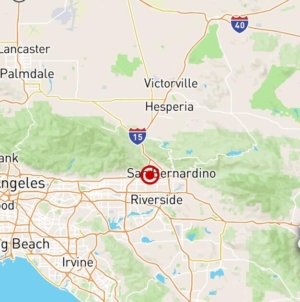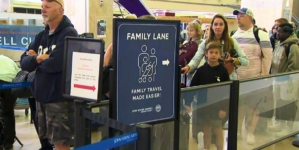-
Joe Burrow slips underneath Lamar, Kyler Murray at bottom of Mahomes Mountain | First Things First - 15 mins ago
-
MLB Rumors: Astros Predicted To Cut Ties With Former Top Prospect - 19 mins ago
-
Miley Cyrus poses nude on Perfect Magazine cover in latest photo shoot - 23 mins ago
-
Marking 80 years since U.S. dropped atomic bomb on Hiroshima - 24 mins ago
-
Family TSA lines launch at select U.S. airports including SoCal - 43 mins ago
-
How to Watch Columbus Crew vs Club León: Live Stream Leagues Cup, TV Channel - 59 mins ago
-
Ex-Miami Heat Security Officer Charged With Selling $2M in Stolen Jerseys - about 1 hour ago
-
President Trump threatens higher tariffs on India - about 1 hour ago
-
California sheriff’s deputy charged with extortion, soliciting bribe - about 1 hour ago
-
Red Sox’s Alex Cora Walks Back Liam Hendriks Comments After All-Star’s Pushback - 2 hours ago
L.A. marijuana businesses will pay higher fees, as industry struggles
Legal marijuana businesses in Los Angeles will pay thousands more dollars in renewal fees, the City Council decided Tuesday, bringing fresh financial woes to an already constricting market.
City officials said the fee increases are necessary to make up for declining tax revenue from the marijuana industry, at a time when the city is in dire financial straits.
“This is a difficult but necessary action for the continued functions of [the cannabis department] and to avoid further strain on our General Fund,” City Councilmember Imelda Padilla in a statement.
But some struggling business owners said the increased fees could threaten their survival.
Luis Rivera previously ran three different marijuana delivery businesses in the city, two of which have gone under. He’s now considering shuttering the remaining one, Bonafide Delivery in Sun Valley, due to the fee increases and low profit margins.
“There’s nowhere to pull the money from,” Rivera said. “The fees will be disastrous.”
The new fees, which the council approved unanimously, are expected to bring in about $6 million this year to the city’s Department of Cannabis Regulation, which is required to recoup all its expenses through fees or other charges.
After four straight years where gross receipt taxes from marijuana sales exceeded $100 million, the amount dropped to about $90 million in 2024, according to cannabis department data.
High state and local taxes and the high cost of doing business because of a lack of access to traditional banking and financing, as well as competition with the illegal cannabis market, have contributed to the falling revenue, said Bryan Bergman, an attorney who works with cannabis businesses.
The illegal dispensaries often undercut the prices of legal stores, in part because they do not pay taxes or fees, and have also been hotbeds of crime, according to law enforcement.
“The fee increases are coming at a really bad time for industry folks. And it’s a very significant increase,” Bergman said.
Cannabis products for sale at Bonafide in Sun Valley.
(David Butow/For the Times)
The cannabis department’s budget is $8.6 million for this fiscal year, and it is expected to pay additional $19 million to other parts of city government, such as the city attorney’s office, for their marijuana-related work.
While increasing fees for marijuana businesses, the new ordinance decreases fines for major violations of city rules and regulations. For example, delivering marijuana goods outside of allowable hours will now result in a $23,000 fine, down from $42,000.
The new ordinance also creates a new category of “severe” violation, such as diverting cannabis to unlawful establishments, which would result in a $34,000 fine. Cannabis Department officials said the goal was to avoid excessively heavy fines.
Los Angeles has the nation’s largest municipal commercial cannabis department, overseeing nearly 1,100 licenses for brick-and-mortar dispensaries, delivery businesses and growing operations.
Department officials argued that its fees, which had not gone up since 2020, did not match the cost of operations. Since the department first authorized fees in 2020, its staff has grown from 37 to 63 members. Through collective bargaining agreements, their salaries have also increased 19% since 2020.
The most widespread hit for marijuana businesses will come from renewal fees, which must be paid annually.
A license renewal will jump from $8,486 to $12,617. A temporary approval renewal will go from $4,233 to $6,294, and a record renewal will increase from $1,829 to $2,719.
The new ordinance also contains other fee changes, including an increase in the business diagram modification review fee and a drop in the ownership structure modification review fee.
A Cannabis Department spokesperson said that participants in its social equity program, which provides support to cannabis operators from communities most harmed by the war on drugs, will have some of their increased fees covered by money from a state grant.
The grant will cover about $3.1 million in new fees, said Jason Killeen, the cannabis department’s assistant executive director, during a city council committee meeting Tuesday. More than half of the money will cover the difference between the old renewal fee and the new one for the 317 social equity license holders. The rest of the grant money will go toward new applicants for social equity licenses.
The increased fees come as the city struggles with a budget crisis likely to continue for several years. This year’s budget closes a nearly $1-billion gap through layoffs and other cuts.
The City Council approved an increase in ticket prices for the L.A. Zoo and has taken steps to raise trash fees for roughly 740,000 customers. The city may also raise parking meter fees and extend the meters’ hours of operation.
The Cannabis Department has acknowledged that the new fees will be a hardship for businesses.
“Please understand that this fee study was necessitated by law and is central to DCR’s ability to continue serving this community effectively and equitably,” Executive Director Michelle Garakian wrote in a July news bulletin. “It’s easy to feel like no one at the City cares. But I assure you, DCR does. DCR has to navigate limited resources, competing needs, and make challenging decisions.”
Source link
























